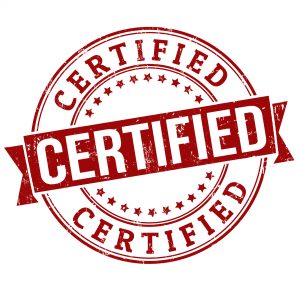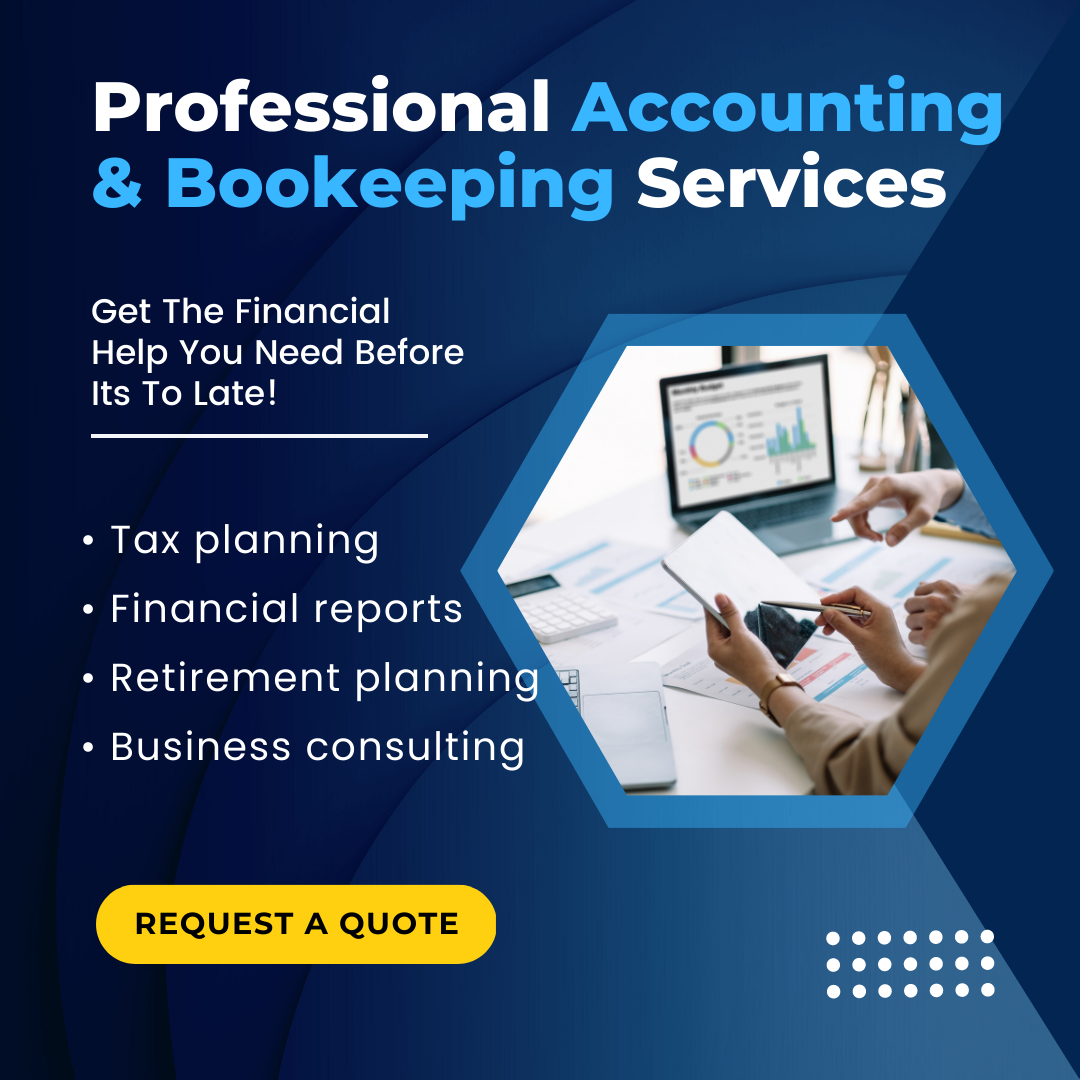
It has become a running joke in the business world: It’s hard to find a good accountant.
Choosing the right tax accountant is critical for your company’s financial future. The best accounting services will help you with your cash flow management and your financial ratios, as well as ensure all of your books are in order so when tax season arrives, there are no surprises.
While maximizing your tax deductions is imperative for business owners to save money and preserve wealth, this cost-savings strategy also helps you stay stress-free during tax season.
Before hiring a tax accountant for your business, it is important to do your due diligence before choosing a professional who will play a critical role in your company’s operations.
Here are 6 tips that will help you choose the best tax accountant for your business:
- Look for a tax accountant with relevant experience.
- Always evaluate a tax accountant for qualifications.
- Consider the complexity of your needs.
- Take advantage of your networks to find the right partner.
- Look for a tax accountant who embodies a fiduciary.
- Know which questions to ask.
Look For A Tax Accountant With Relevant Experience
Your business and the industry you operate within have their own sets of unique needs and characteristics. The tax accountant you work with should have a keen understanding of what a business like yours does on a day-to-day basis.
While some tax firms specialize in industries like non-profit organizations, others may work primarily with construction firms, multi-level businesses, retail establishments, insurance companies or even businesses that have sole proprietors. The services these tax accountants provide may be based on the specific types of companies they work with throughout the year.
On the other hand, the size of your company can play a role in the tax accountant you choose. For example, while it may seem comforting to know that your accountant works with small businesses like yours, it’s always a good idea to check whether they work with larger clients as well. This can be a good sign that the company you are considering will know how to handle your needs as your business grows.
One way you can determine whether a tax accountant is prepared to handle your company’s needs as it evolves is by asking how the accountant’s clients have developed over the years and how the accounting firm responded with the services it provided.
If you’re self-employed, it’s helpful to work with a tax accounting company that understands strategies to put you in the best possible position. These include knowing which deductions can lower your taxes and implementing as many as possible to help keep your business financially healthy.
Always Evaluate A Tax Accountant For Qualifications
If your car needed repairs, you wouldn’t take it to an unlicensed mechanic, or worse, to someone with no experience. Your tax accountant plays an important role in your company’s financial health. Ensuring your books are well taken care of and meet compliance is important.
role in your company’s financial health. Ensuring your books are well taken care of and meet compliance is important.
There are several ways you can evaluate the qualifications of a tax accountant you are considering. The tax accountant should meet all requirements for state certification. A CPA (certified public accountant) or CMA (Certified Management Accountant) also must typically take continuing education courses in order to keep a certification and license.
You can also perform a background check on the accounting firm you are considering to mitigate your risk. This allows you to confirm any certifications and licenses, as well as check whether the company has had any regulatory complaints alleged against it.
Sometimes performing a search online will even yield helpful results, from user reviews to any instances (favorable or unfavorable) where the firm has made the news.
Consider The Complexity Of Your Needs
The level of accounting services you need may impact the type of tax accountant you choose. For example, if you simply need an accountant to prepare your business’s tax returns for the year and e-file them, you may opt for a smaller agency or an independent tax consultant to help you with these needs.
However, if you need a partner who will work with you throughout the year to help you get control of your company’s finances and minimize the stress of managing these finances, a more comprehensive firm may be the better option.
In addition to helping you prepare your taxes, a quality firm will also offer additional services like bookkeeping, multi-level business tax accounting and even specialized accounting services for complex industries like insurance.
Outsourcing these accounting services, which may currently be handled either by a business owner or a designated employee, can save you time and money while increasing your efficiency.
Take Advantage Of Your Networks To Find The Right Partner
Your networks are a great resource to tap into in order to help you find the best tax accountant for your business. Particularly businesses like yours can help refer candidates to you and offer their experiences of working with their tax accountants.
It’s important to keep in mind that choosing an accountant can be a complex decision (after all, while one agency may be perfect for one business, it may not be for another). However, chatting with other business owners about who they work with can provide valuable insight into qualities that may work for you or may not work for your company’s needs.
Another resource you can take advantage of are local government agencies or business associations. Chambers of commerce often provide recommendations for free, and business associations may hold networking events that can offer opportunities to meet financial partners in a more laid back, informal setting.
On a larger scale, networking sites like LinkedIn can be a great search tool for looking for accountants who have stellar recommendations, either locally or beyond your city. There are even local resources like Facebook or a Local Rants and Raves Facebook page so you can ask local business owners who they use.
Look For A Tax Accountant Who Embodies A Fiduciary
What is a fiduciary? A fiduciary is a representative that acts on behalf of a person or organization. A fiduciary puts a clients’ interests above their own and has a duty to act in good faith and trust. As a fiduciary, you are legally bound to act in the interests of others and not yourself.
A fiduciary is often associated with banking institutions, investment advisers and insurance agents, as well as with corporate board members and shareholders. While tax accountants aren’t normally considered as a fiduciary, the AICPA Professional Code of Conduct closely resembles many of the same standards of conduct.
In other words, the tax accountant you work with should prioritize high standards of conduct, including practicing high standards of objectivity, integrity and truthfulness. Tax accountants should always act with due care and confidentiality, and disclose any potential conflicts of interest.
When considering which tax accountant you believe will serve your company best, one of the questions you can ask is about the agency’s code of conduct.
Know Which Questions To Ask
One of the biggest mistakes you can make is not interviewing a tax accountant before you hand over your confidential records. Taking the time to interview firms can help ensure you not only determine an agency’s qualifications, but also can offer the opportunity to get any questions you have answered before you make this important decision.
Knowing exactly which questions to ask can be challenging. While asking about a tax accountant’s qualifications is a natural part of the interview, there are a few other questions that can help determine whether that accountant is right for your business. For example, here are a few that can help you learn more about what your experience with a particular tax accountant firm may be like:
- Can I meet with staff members? If interviewing a tax accountant firm or agency, there’s a good chance the person you are speaking with won’t be the person handling your account. Ask to meet with a few of the staff members who will be in charge of servicing your account. This will help provide some insight into their communication preferences, as well as serve as a great way to learn about internal processes.
- Do you have references? A tax accountant should be able to provide you with the names of clients similar to yours, either in industry or size. Don’t forget to reach out to them, as they can provide valuable insight into working with the agency you are considering.
- How do you ensure my information stays protected? The best tax accountants will integrate proprietary software that ensures your data is secure and protected at all times.
- How do you communicate? Every company’s communication style is different. Even every tax accountant within a company has different communication preferences. It’s a good idea to get a general understanding of how a prospective tax accountant prefers to communicate with clients, whether that’s through phone, email or in-person meetings. Even working hours may vary, so getting on the same page from the beginning can help a professional relationship start off on the right foot.
Finally, while it’s important to get to know the qualifications, professional work ethic and strategies tax accountants plan to use to manage your account, it’s just as important that any accountants you consider take the time to get to know your business as well.
Providing you with a cookie-cutter sales pitch or not asking you questions about how your business operates can be huge red flags. The best tax accountants take the time to understand the ins and outs of your business so that you not only stay in compliance, but help you gain control of your finances.



